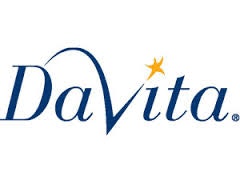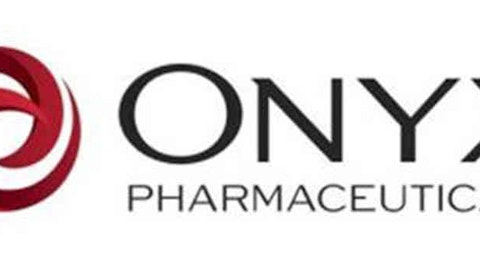Shares of the two largest kidney care companies in the United States, DaVita HealthCare Partners Inc (NYSE:DVA) and Fresenius Medical Care AG & Co. (ADR) (NYSE:FMS), recently plunged after the U.S. Medicare system proposed to reduce payments for dialysis services by 9.4% in 2014. This reduction, which would reduce payment per treatment from $240.36 in 2013 to $216.95 in 2014, was much steeper than Wall Street’s prior expectations for a 4% to 5% reduction.
On July 2, DaVita HealthCare Partners Inc (NYSE:DVA) and Fresenius Medical Care AG & Co. (ADR) (NYSE:FMS) slid 5.9% and 9.6% respectively, as investors panicked about the future growth of both companies. Should contrarian investors take this opportunity to pick up shares of these two companies, or are lower prices on the horizon?
A new epidemic
Diabetes is a major epidemic in the United States, currently affecting 12% of 45-64 year-olds and 19% of seniors over 65. 95% of American diabetes cases are classified as Type 2, which can be treated with dialysis. Dialysis has been shown to reduce patients’ dependence on insulin, and is a necessary treatment to prevent kidney failure. As seen in the following chart, diabetes cases have increased dramatically starting in the mid-1990s.
Diabetes is apparently rising at an unstoppable rate in the United States. Many physicians have blamed rising obesity trends, unhealthy diets and sedentary lifestyles across the country for causing this spike.
A tale of two market leaders
DaVita HealthCare Partners Inc (NYSE:DVA) currently controls 33% of the U.S. dialysis market, while Fresenius controls 37%. DaVita HealthCare Partners Inc (NYSE:DVA), which is based in Denver, Colorado, expects a rise in diabetes cases to increase its clinic visits by 4% annually, providing it with a steady cash flow. Analysts are Morningstar are even more optimistic, believing that its dialysis services unit will grow 7.3% annually. DaVita HealthCare Partners Inc (NYSE:DVA) plans to use this cash to steadily grow overseas, and to expand its rapidly growing physician group manager, Healthcare Partners.
Fresenius Medical Care AG & Co. (ADR) (NYSE:FMS), on the other hand, is based in Bad Homburg, Germany, and is the world’s largest dialysis service company. It is the dialysis care segment of health care conglomerate Fresenius Group. Fresenius Medical Care was formed in 1996 from a merger between Fresenius Medical Care AG & Co. (ADR) (NYSE:FMS) Worldwide Dialysis and the American company National Medical Care. The company offers kidney dialysis services and renal care products.
Fundamentals first
Before we discuss the challenges facing these two companies, we should take a look at their fundamental growth patterns.
| 5-year PEG Ratio | Trailing P/E | Price to Sales (ttm) | Debt to Equity | Profit Margin | Qty. Revenue Growth (y-o-y) | Qty. Earnings Growth (y-o-y) | |
| DaVita Healthcare Partners | 1.21 | 26.93 | 1.32 | 186.79 | 4.65% | 53.00% | -78.50% |
| Fresenius Medical Care | 1.55 | 19.00 | 1.38 | 81.41 | 7.29% | 6.40% | -39.10% |
| Advantage | DaVita | Fresenius | DaVita | Fresenius | Fresenius | DaVita | Fresenius |
Source: Yahoo Finance, 7/4/2013
Based on their PEG and P/E ratios, the market is pricing in fairly robust growth over the next five years. Both companies are better at growing their top lines than their bottom lines, which shouldn’t cause major concern since earnings growth at both companies is fairly cyclical, as seen in the following chart.

For now, investors should focus on revenue growth at both companies. DaVita HealthCare Partners Inc (NYSE:DVA)’s robust revenue growth last quarter was attributed to a higher number of operational centers, higher revenue per treatment, better cost controls, and an improved mix of commercial and Medicare businesses, according to analyst Matthew Borsch at Goldman Sachs. Fresenius Medical Care AG & Co. (ADR) (NYSE:FMS) also cited many of the same strengths last quarter, but its revenue growth was throttled by weaker growth in Europe, the Middle East and Africa.
The billion dollar problem
That brings us to the major problem that DaVita and Fresenius Medical Care AG & Co. (ADR) (NYSE:FMS) investors now face – Medicare’s proposed 9.4% reduction in dialysis payments for 2014. Reducing those payments would impact 90% of DaVita HealthCare Partners Inc (NYSE:DVA)’s patients, which account for 66% of its revenue. DaVita is also more exposed to the cut, since its business is almost entirely domestic, in contrast to Fresenius, which has operations spanning the entire globe.
The proposed cuts are part of a federal budget-balancing agreement, which also targets Amgen’s anemia drugs. The government is intent on cutting these payments by $1 billion, which bodes ill for any company producing drugs or treatments that are heavily dependent on Medicare.
How badly DaVita and Fresenius’ revenue will suffer due to the proposed cuts is uncertain, since the reductions are still pending approval, but it appears that investors aren’t planning to sit around and find out.
Safer alternative investments
Given Wall Street analysts’ habit of quarterbacking after the fact, I believe that DaVita and Fresenius Medical Care will be downgraded due to the uncertainty of their revenue projections for 2014 and beyond. Therefore, there are two other stocks that investors can consider to invest in diabetes medication, rather than dialysis – Merck & Co., Inc. (NYSE:MRK) and Pfizer Inc. (NYSE:PFE).
In April, Merck & Co., Inc. (NYSE:MRK) and Pfizer Inc. (NYSE:PFE) unexpectedly teamed up to develop a new type 2 diabetes drug, ertuglifozin, an orally administered sodium glucose cotransporter (SGLT2) inhibitor. SGLT2 inhibitors help patients excrete glucose in urine to stabilize sugar levels, and possibly reduce the amount of insulin injections needed daily. Ertugliflozin is currently ready for Phase III trials and could be marketed as a standalone drug or in combination with two other orally administered drugs, metformin and sitablipin (Merck’s Januvia), which are both antihyperglemic agents that counteract high levels of glucose in the blood.
Merck & Co., Inc. (NYSE:MRK) and Pfizer Inc. (NYSE:PFE)’s unlikely alliance was forged to expedite the approval of its SGLT2 inhibitor to the market to compete with Johnson & Johnson (NYSE:JNJ), Bristol-Myers Squibb and AstraZeneca, which all have competing products. However, only Johnson & Johnson (NYSE:JNJ)’s SGLT2 drug, Invokana, has been approved by the FDA.
Merck & Co., Inc. (NYSE:MRK) paid Pfizer $60 million to initiate the partnership, and will split the revenue and costs on a 60/40 percent basis, respectively. The partnership should also draw attention away from Merck & Co., Inc. (NYSE:MRK)’s problems with Januvia, which is being investigated by the FDA due to claims that it could cause pancreatic cancer. Januvia accounted for $4 billion in Merck’s annual revenue last year.
The Foolish Bottom Line
Biotech investors need to be aware of the significance of the diabetes epidemic. 25 million Americans are currently diagnosed with diabetes, and the condition costs its patients more than $245 billion annually. That brings the yearly total cost per patient to $9,800, and that cost is likely to continue to rise unless Americans start to address the source of this debilitating condition.
Investors interested in this sector should pay attention to DaVita HealthCare Partners Inc (NYSE:DVA) and Fresenius Medical Care AG & Co. (ADR) (NYSE:FMS)’ upcoming quarterly earnings to see how deep the upcoming Medicare reductions cut into their top lines. If the damage is less than expected, I believe investors should consider these two stocks as viable long-term investments. Meanwhile, Merck & Co., Inc. (NYSE:MRK) and Pfizer could generate billions in additional revenue if its co-developed SGLT2 inhibitor is approved.
It’s unfortunate for America, but I expect all four companies to continue reporting robust growth as long as diabetes rates rise.
The article Four Robust Investments in Dialysis and Diabetes originally appeared on Fool.com and is written by Leo Sun.
Leo Sun has no position in any stocks mentioned. The Motley Fool has no position in any of the stocks mentioned. Leo is a member of The Motley Fool Blog Network — entries represent the personal opinion of the blogger and are not formally edited.
Copyright © 1995 – 2013 The Motley Fool, LLC. All rights reserved. The Motley Fool has a disclosure policy.





